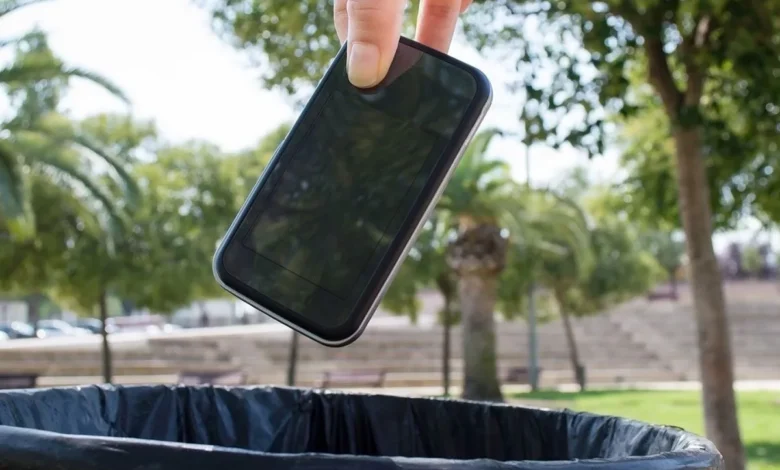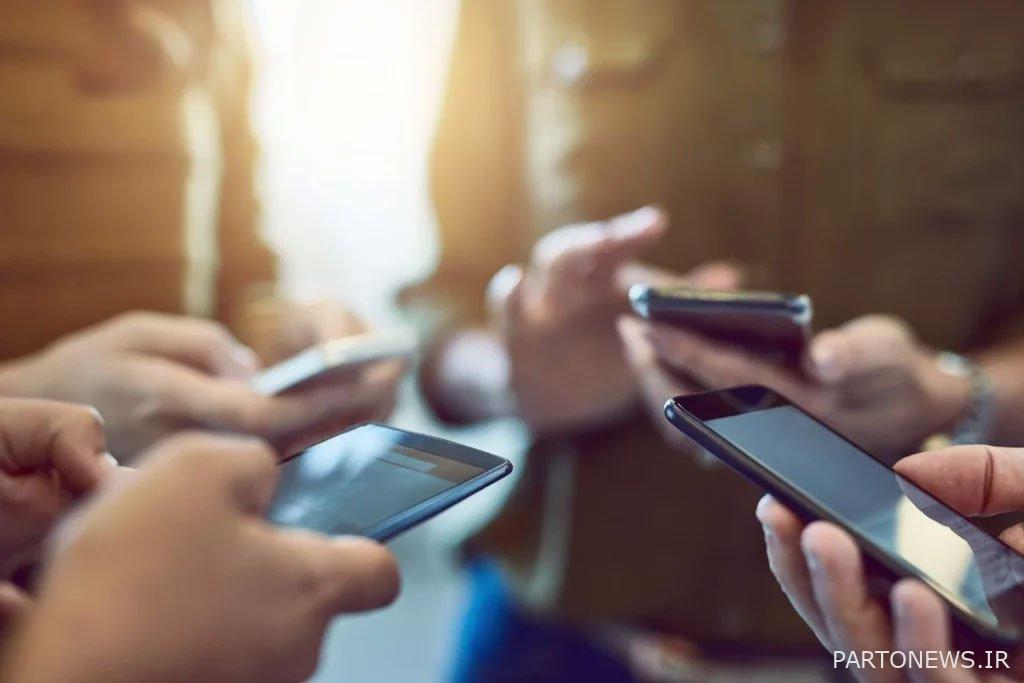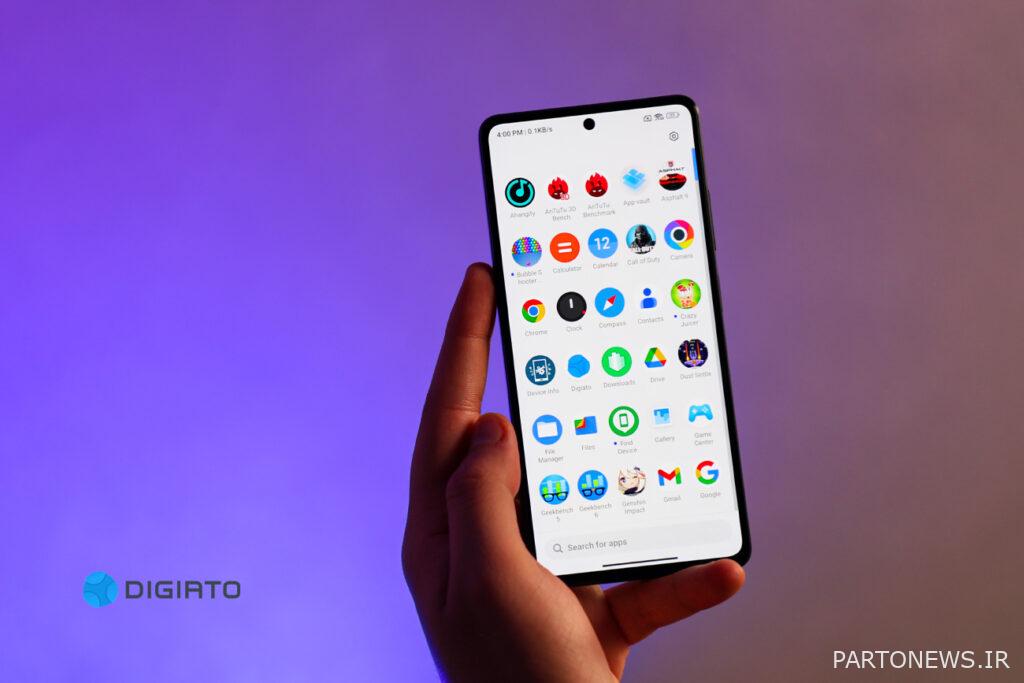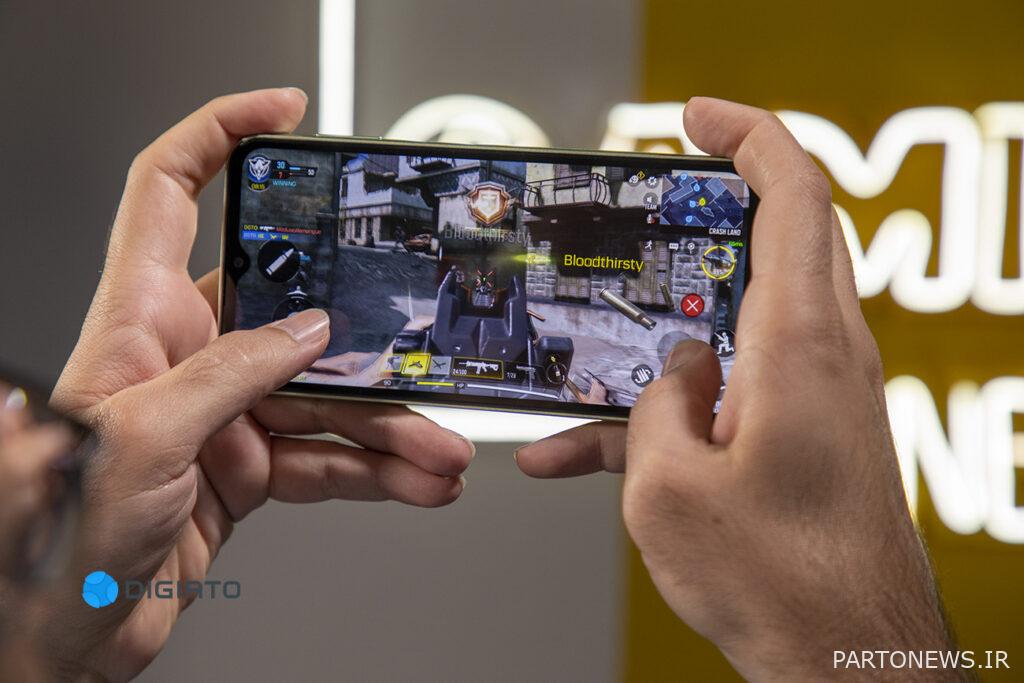What is life like without a smartphone?

Undoubtedly, giving up the smartphone in 2023 is impossible for many people; But in this era of communication, there are also people who have given up on smartphones and believe that they are more comfortable and happy with simple phones.
In this article, we get to know people who, unlike everyone else, have a very good middle ground Smartphone They don’t have them and they almost don’t go to them. First of all, we meet a 21-year-old person named “Angelo Profera”. At the beginning of this year, his phone was broken. He is like any other young man Smartphone he used, sent messages to his friends, searched in social networks and reached his management tasks in the web space; But after his phone broke, he fully realized that using the phone was more of a hassle than a convenience. He said the following about this issue:
“Being online was stressing me out. “Answering voicemails and always being available took a lot of energy from me, which I didn’t like.”
When Angelo Profra was looking to buy a new phone, an idea came to his mind and he bought a simple phone that did not have the ability to connect to the Internet and could only be used to make calls and send and receive simple text messages. This decision was a big move for someone who was heavily addicted to smartphones. He, who lives in Switzerland, was initially worried about getting away from his smartphone and using simple phone become a problem for him; But instead, he had changed the way he interacted with the world.
Now, when he wanted to talk to different people, he would call them instead of chatting on WhatsApp, and this had improved the quality of his relationships in life. He also felt more confident and efficient in his job as an engineer. He said the following about this issue:
“Since I’ve been calling people more, I’ve become more comfortable talking about work and doing things.”
He was no longer distracted by his smartphone and felt freer and in a better state of mind.
Increasing the use of simple phones instead of smartphones
It seems that other than Profra, many other people are also inclined to put aside smartphones; Because although the global growth of smartphone sales continues, on the other hand, many people are replacing their smartphones with simpler models. HMD Global, the company that owns Nokia, recently announced in a report that sales of simple folding phones increased by 5% in the US, were growing in Europe and doubled in Australia.

Apple introduced the first iPhone in 2007; Only one year after the introduction of this phone, the British Post Officenomophobia” Or “Fear of silenceinvented to describe the state of distancing oneself from the smartphone. Currently, smartphones are widely seen in developed countries and even in other countries of the world. According to statistics, in 2022, people living in England who have used a smartphone will spend an average of 4 hours and 14 minutes with it every day; While this statistic was nearly 5 hours in Australia.
The reason for the need to deal with smartphone addiction from the point of view of experts

Warnings are regularly issued about the potential effects of excessive phone use on sleep, relationships and mental health. Also, the increasing results of studies showing growth Smartphone addiction Is. “Ru Litherland”, a 49-year-old researcher, has studied the increase in smartphone use over the past 16 years without attracting attention. In his opinion, it is difficult to understand why people have become so dependent on smartphones, and in his opinion, dependence on these phones is not necessary.
He said the following about this issue:
“Technology must serve us; But many technologies were originally created to make a profit. I myself, when I encounter a new technology, I look at it with the approach of how useful it is and what I will lose if I use it. “In most cases, I find that if a technology benefits me, it also harms me.”
Litherland sees smartphones as useful devices, but in his opinion, they take people away from appreciating the world around them; Although moving away from smartphones, we are forced to wait in long lines at banks and call centers, and also have to communicate through the long and tedious process of writing letters, but for Litherland, these seemingly boring tasks are actually opportunities for better social interactions.
According to Dr. Zeena Feldman, one of the senior lecturers in the field of digital communication at King’s College London, people who do not want to use smartphones can be divided into three categories; The older generation who have not used them at all, the middle-aged who have moved away from smartphones for privacy reasons, and the Z generation (young generation born between 1995 and 2010) who have truly understood the harms of heavy dependence on these small pocket computers. Feldman calls those cell phone ditching advocates who belong to Generation Z technology averse.
The temporary or permanent non-use of smartphones has also recently become popular among celebrities. “Michael Cera”, “Selena Gomez” and “Aziz Ansari” are among those who joined the campaign. Not to the smartphone They are connected!

But many people are still completely dependent on the phone, and Lithland says that’s why it’s hard for people to understand the choice (not the smartphone). He is eager to talk about this subject when he gets a chance; Because when he brings it up with people, only a few seem to engage in discussion, and most people react to talking about it with confusion.
Interestingly, Litherland reluctantly bought his first smartphone last year and felt compelled to do so. Apparently, she was forced to buy a smartphone because many of her child’s school activities were organized through WhatsApp groups and she was worried about limiting her child’s access to social opportunities; But apart from WhatsApp, no other social network application has been downloaded with it; Of course, according to himself, he likes the phone camera!
For people who are used to smartphones, it is really hard to live without them. Catherine Webb, 45, has tried life without a smartphone several times and once used a simple phone for months. According to him, he felt comfortable at that time. He said this about this issue:
“In your free time, instead of picking up the phone and realizing that the end is near, or seeing a disturbing work email, or seeing someone on the Internet who’s upset about something trivial, you can just think.”
Although the web has always loved the simple phone, the proliferation of QR barcodes and their increased use for everything from restaurant menus to getting tickets with your phone has made it a smartphone.
Feldman says ditching the phone can often be considered a privilege given only to people who don’t want to rely on an agency or an assistant for work. Unlike Serra, Ansari, and Gomez, most people don’t have organizations or assistants to surf the web for them. Temporary and part-time jobs such as delivery couriers require the use of smartphones. However, the expectation to make quick connections in other areas of work means that not having an organization or assistant can severely limit a person’s effectiveness and ultimately their attractiveness to employers.
David Sorauer, a digital marketer from Sydney, knows well that smartphone addiction is troublesome; Especially for people who think they should always be available to call. Instead of using a simple phone, he has activated all the settings on his smartphone that limit its capabilities.
Souravar also always puts the screen of his phone in black and white mode, which reduces the attractiveness of the phone. He has also hidden the applications that entertain users for a long time, such as email applications, news applications and browsers; So his phone can still be used for essential tasks like navigation, banking and taking photos; But it’s much less tempting to do things like mindless, time-wasting web surfing. He says that using the phone has not had any negative effect on his work; Because he has made it very clear when he will be available to call. According to him, reducing his dependence on always being online has given him a sense of freedom and clarity.
Even the telecommunication companies have thought of arrangements to enable the temporary disconnection of the phone internet; For example, the Australian mobile operator Optus has created a feature called “pause” that allows users to turn off their phone’s internet for a certain period of time. According to Matt Williams, head of marketing management at Optus, the demand for this feature peaks on Wednesdays from 9 to 10 a.m., and monthly users spend an average of 28 hours off their phone’s internet.
Generation Z’s interest in simple phones may not mean distancing from technology. The 1 billion views of flip phone videos on Tiktok shows that flip phones are as much a symbol of nostalgia and attention to 2000s technology as they are a dying technology.
Le Lordieck, a computer programmer living in Germany, also says that putting away a smart device does not mean completely disconnecting from the Internet. He, who is now 28 years old, bought his first smartphone in 2018; But lately he’s back to the simple phone because he finds it too distracting.
Although Lordik needs the Internet for his work, he uses his laptop, Telegram, and Slack to communicate with his group members while doing his work; Of course, he has admitted that if it was necessary to use a smartphone in his dream job, he would have used it; But according to himself, he tries not to have to use his smartphone again in his daily life.
Of course, putting away the phone for Lordik also had negative social consequences; His friends call him less now and he thinks the reason for this is that his name no longer appears in the list of WhatsApp and Telegram chats.

But on the other hand, Webb believes that using a smartphone has negative consequences (two opposing views!). He says that people don’t accept the reality that is in front of their eyes, and instead they drown in the reality that they see on their phones! He says about this:
“I think having everything in our pockets is a really bad option.”
Several researches defend the view of the web, which is introduced as “phone reality”. In 2021, a group of demographers from University College London described phones as “the place where we live”. These demographers have likened phone use to a snail sinking into its own shell.
The results of a study conducted at the University of Melbourne during the Covid quarantine showed that people used phones to relieve themselves at that time.
Professor Wally Smith, a researcher in the field of human-computer interaction who participated in the research at the University of Melbourne, has said the following about this issue:
“People are thinking about how they can use phones to strategically manipulate their emotions.”
Although common tasks for emotional regulation, such as listening to music, do not harm humans, Smith says the smartphone can become a source of instability, causing what researchers at the University of Melbourne call “disrupted regulation.” Watching a funny video or texting a friend may relieve some of the feelings of sadness and loneliness; But on the other hand, what we see on our phones triggers emotions that we try to avoid.
Smith has said this:
“In one case, participants in the (University of Melbourne) study turned to the Internet to clear their doubts and searched for economics and news related to the coronavirus, but the search results only made them more anxious and upset.”
The same incident justifies the reason for Litherland’s refusal to use the phone for a long time. He says there are many other ways to spend his free time, and he prefers walking.

